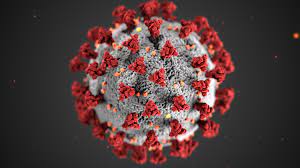

By Yogendra
First publised on 2021-06-27 07:19:05
Balaram Bhargava, the director-general of Indian Council for Medical Research (ICMR) has warned that the second wave of Covid-19 has is yet over. Bhargava has based his warning on the fact that 92 districts in India are still reporting positivity rate (PR) between 5-10% and 75 districts more than 10%. Hence, Bhargava says that 167 districts still have PR above the WHO mandated 5% that can be considered safe and controllable.
A later report has confirmed that 40% of the total active cases in the country are in just 20 districts with 7 in Maharashtra and 5 in Kerala. Bangalore Urban, with 67681 active cases, leads in terms of case numbers followed by Kamrup Metro (Guwahati area) with 15139 cases.
All these figures point to the fact that India has now got to follow micro containment strategy which Prime Minister Modi has repeatedly advised. Since the incidence of infection is heavy in some districts, it is urgently required that the full focus of the administration must be on these districts and apart from testing-tracing-treating, strict restrictions, including travelling to and from these districts, must be in place in such districts.
Out of the 167 districts that are still showing PR of 5-10%, the ones that have the worst PR must be totally sealed off. Of the rest, there must not be any relaxation in restrictions with only essential services allowed to function. The people of all these districts must be fully vaccinated as fast as possible. Testing must also be done repeatedly in such districts to prevent the spread.
An ICMR report has also said that although there will be a substantial third wave in India, it will not be as large or as ferocious as the second wave. But the fact remains that with the second wave still not over and with too many asymptomatic carriers on the loose, the risk of a third wave starting sooner rather than later is huge, more so because most states have started doing away with restrictions. The Delta+ variant also poses a great risk, although it is now restricted to certain districts and is under constant monitoring by the authorities.











